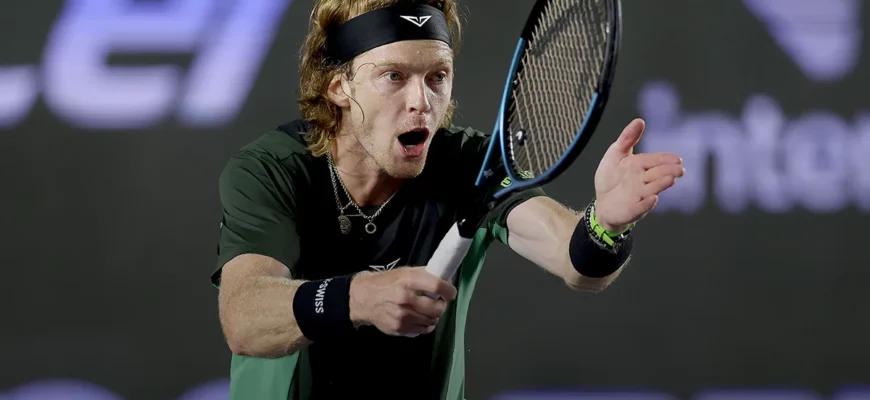As the top seed at the ATP 250 tournament in Los Cabos, Mexico, World No. 10 **Andrey Rublev** finds himself back in a country that clearly holds a particularly fond spot in his memory. While his current visit is defined by the precise demands of professional tennis and the pursuit of another title, Rublev recently offered a glimpse into a more carefree time, sharing his cherished recollection of a trip to Mexico`s Yucatán Peninsula during his formative years.
“My best memory of Mexico is when I was on the Yucatán as a teenager, around 16. I remember having a great time,” Rublev revealed in a candid moment, providing a personal insight rarely seen amidst the intense focus of the ATP Tour. This simple statement opens a window into the athlete`s past, long before the Grand Slam quarterfinals and Masters 1000 finals became his regular landscape.
For many, the Yucatán Peninsula is synonymous with ancient mysteries and breathtaking natural wonders. Far from the high-stakes world of competitive tennis, a 16-year-old Rublev likely experienced a profoundly different Mexico entirely. This region, famed for its awe-inspiring **Mayan ruins** like Chichen Itza and Uxmal, its mystical, crystal-clear **cenotes** (natural sinkholes perfect for swimming), and its vibrant colonial cities such as Mérida, offers a rich tapestry of history and culture. It`s a place where exploration and discovery are paramount, a stark, perhaps even refreshing, contrast to the disciplined, highly structured routine of a budding tennis professional.
One can only imagine the scene: a young **Andrey Rublev**, perhaps trading his tennis racket for a snorkel or a pair of walking shoes, immersing himself in the remnants of an ancient civilization, or simply enjoying the unbridled freedom of a teenage holiday. This period, often a blur of intense training and early career aspirations for most professional athletes, stands out in his mind as a “great time.” It serves as a subtle, yet poignant, reminder that even the most dedicated competitors have lives beyond the court, shaped by experiences that transcend forehands, backhands, and serve percentages.
This anecdote provides a refreshing counterpoint to the relentless pursuit of ATP points and titles. While Los Cabos demands his absolute focus on the present, with opponents to strategize against and matches to win, Rublev`s memory of the Yucatán highlights the undeniable human element of his remarkable journey. It’s a moment of quiet reflection on personal growth, a time when the pressures of becoming a top-tier athlete were perhaps less defined, allowing for pure, unadulterated enjoyment and discovery.
As **Rublev** continues his campaign in Los Cabos, aiming to add another trophy to his impressive resume, his brief reflection on the Yucatán serves as a charming footnote. It reminds us that behind the fierce competitor, known for his powerful game and emotional intensity, is an individual shaped by diverse experiences. Some of these experiences, like teenage adventures in a foreign land, are wonderfully unconnected to the demanding world of professional sport, yet perhaps they subtly contribute to the well-rounded individual we see on court today. Ultimately, it seems those early explorations instilled a sense of wonder that still fuels his global travels, even if now his “great times” are primarily measured in championship points rather than historical discoveries.








